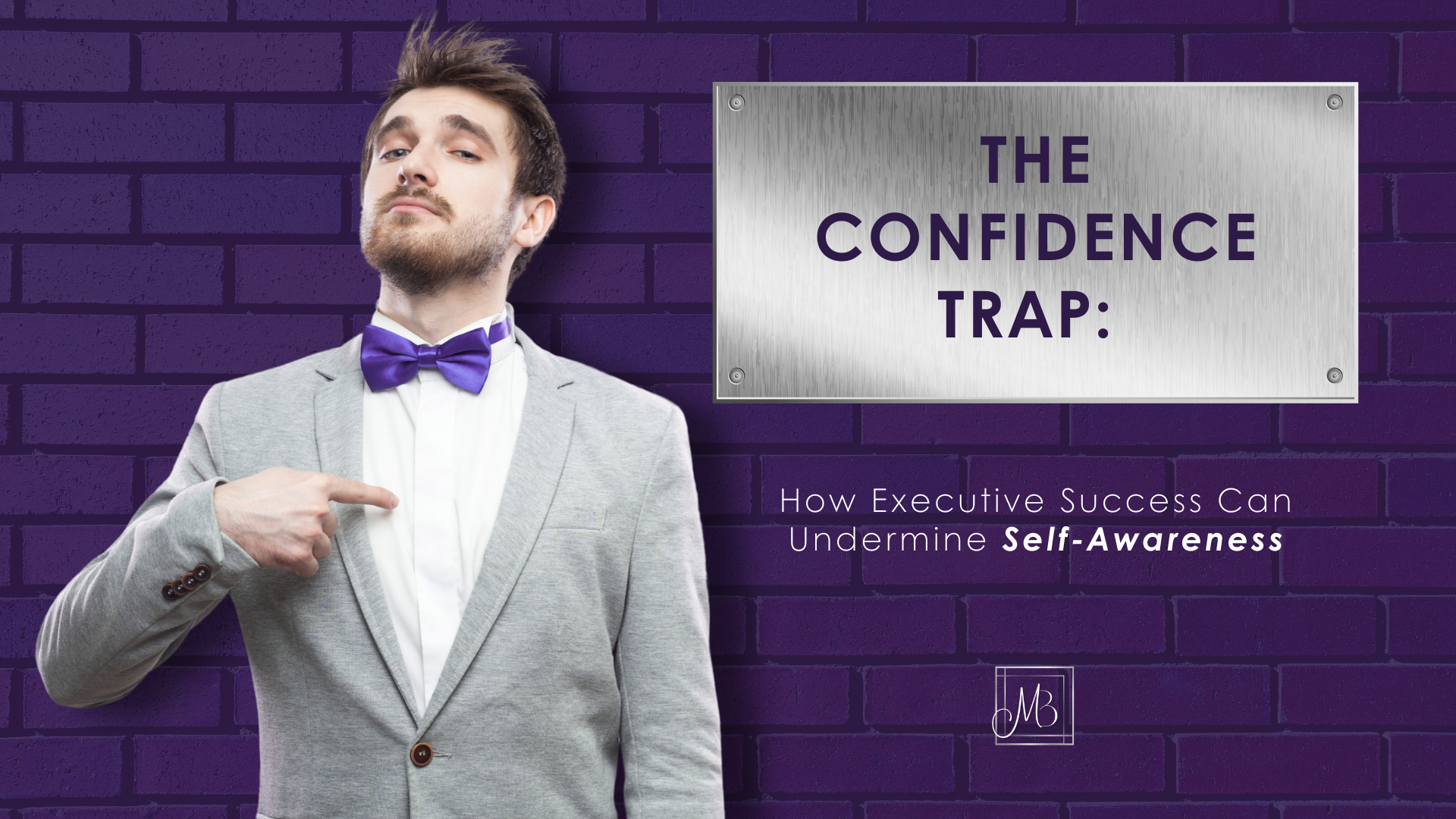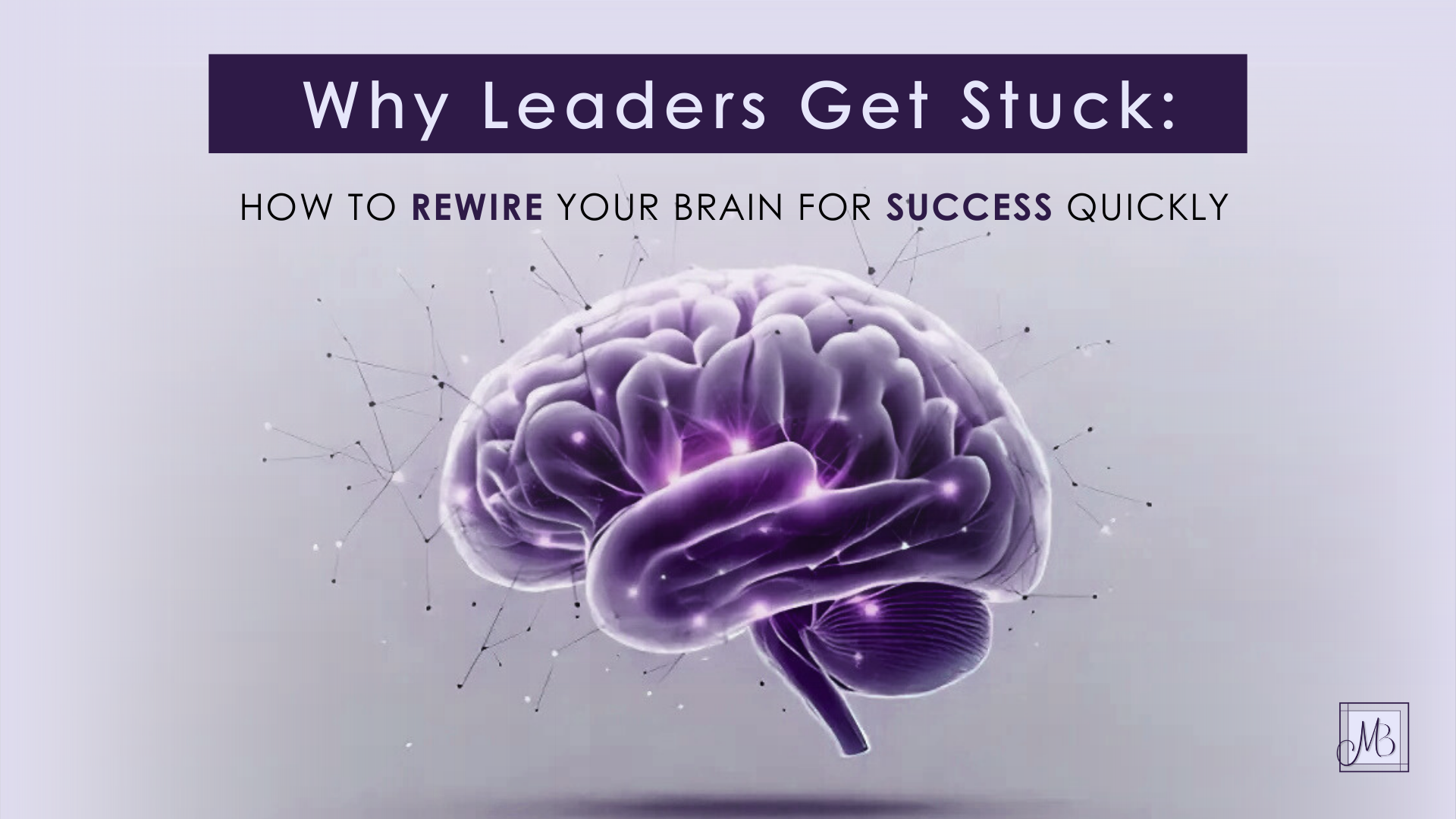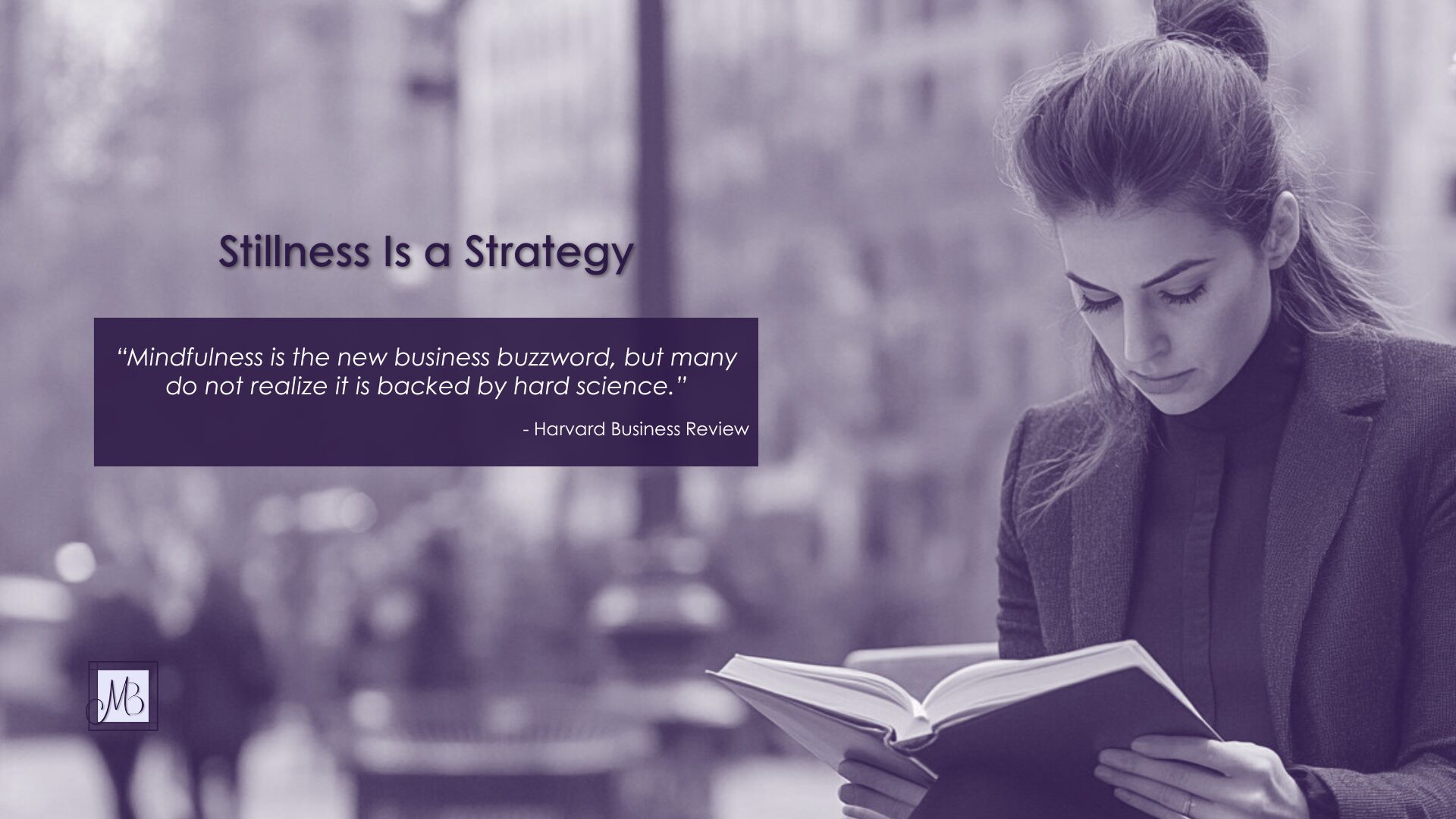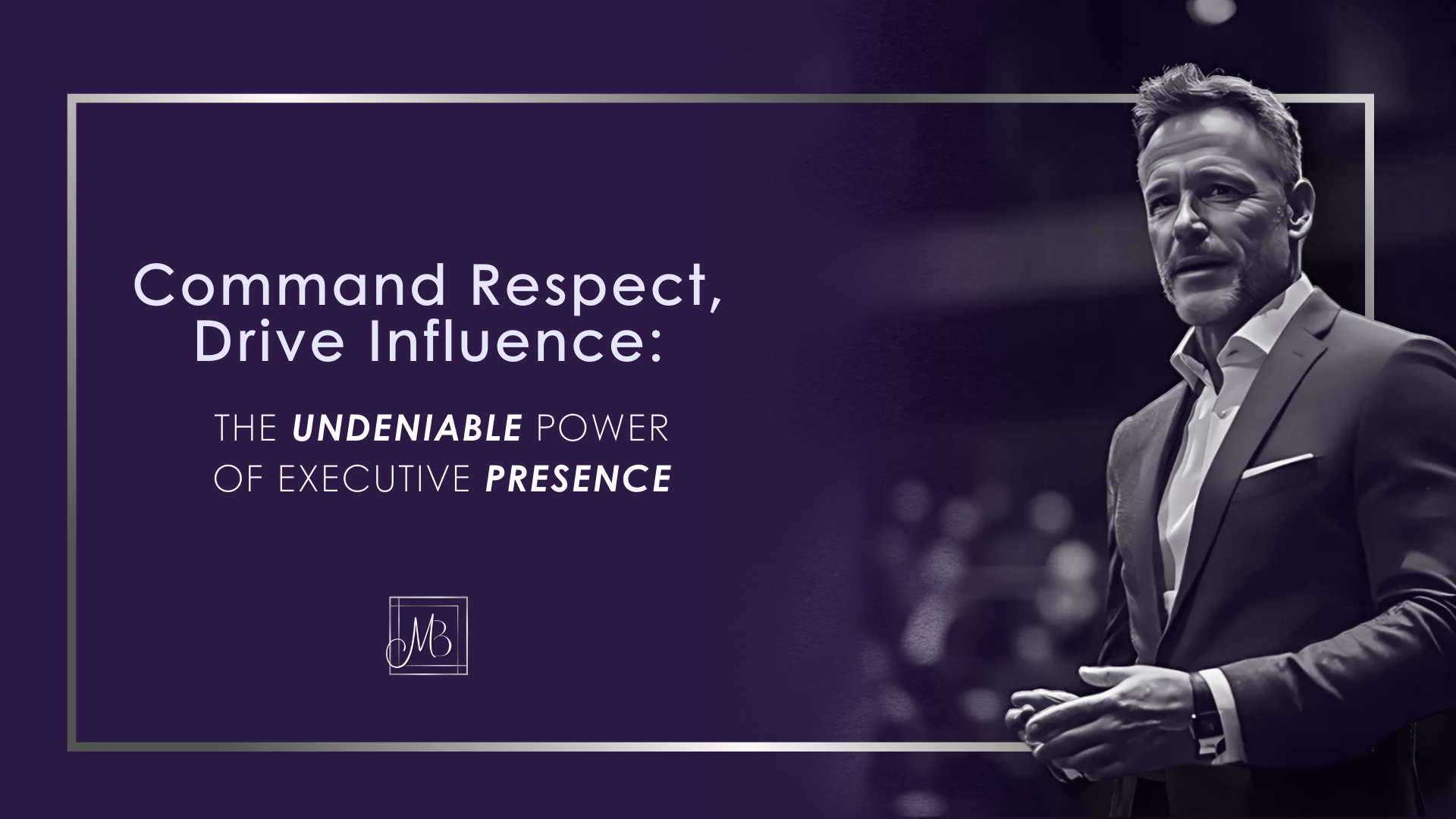Success breeds confidence. When unchecked, confidence can lead to blind spots that undermine leadership and the success of your team.
In the corporate world, unchecked confidence can lead to a lack of self-awareness. Deeply ingrained in their expertise, leaders may assume their authority, experience, and insights are enough. But when this confidence morphs into a lack of self-awareness, they risk becoming the very leaders they once resented — unapproachable, dismissive, and unaware of how their presence affects those around them.
Recently, I was on a call with a group of volunteers — business owners who were donating their time to a cause. A support person was asked a simple question. Instead of answering it in a helpful, open manner, they responded defensively, as if they were being attacked. The shift in the room was immediate. The volunteers — leaders in their own right—instantly picked up on the tension. This kind of scenario isn’t unique to a volunteer setting. It plays out daily in boardrooms, leadership meetings, and client interactions.
A Moment Lost
And in the background? A flurry of text messages. The disconnect was palpable. The moment was lost.
This scenario isn’t unique to a volunteer setting. It plays out daily in boardrooms, leadership meetings, and client interactions.
Executives often build their careers on decisive action and unwavering confidence. They know their industry, they’ve mastered their craft, and they’ve seen enough situations play out to anticipate outcomes before they unfold. But that expertise can create a dangerous illusion—that they are beyond scrutiny.
Self-awareness is not a one-time achievement. It requires constant maintenance. The moment you assume you’ve mastered it, you’ve already begun to lose it. It’s a journey, not a destination.
Defensiveness Over Curiosity
One of the most subtle ways overconfidence manifests is through defensiveness. The support person on the volunteer call reacted defensively to a simple question—likely because they felt challenged or undermined. However, a self-aware individual who understands the value of listening and understanding before responding doesn’t need to defend themselves. They engage in meaningful dialogue rather than shutting down potential collaboration.
If the person had paused and considered the audience, they could have approached the situation differently. Instead of reacting defensively, they might have said, “While this is the way we are currently handling it, is there another approach that might better address your needs?” This simple shift—from reacting to engaging—would have transformed the exchange into an opportunity for collaboration. It acknowledges that one size does not fit all and invites diverse perspectives into the conversation.
When was the last time you paused before responding? Do you listen to understand, or do you listen to reply?
Forgetting the Power Dynamic
As managers climb the ladder, they forget what it was like to be on the lower rungs. They don’t see their title the way others do. To them, they’re just doing their job. To others, their presence can be intimidating. A simple ‘What do you mean by that?’ can sound inquisitive from a peer but accusatory from a senior leader.
A self-aware leader understands the weight of their words and presence. They adjust accordingly, ensuring their interactions build bridges rather than walls.
Do you assume people see you as approachable? Or do you actively work to make sure they do?
Dismissing the Experience of Others
Executives, especially those with decades of experience, can unintentionally minimize the contributions of those with less tenure. They may assume they have the best solution, disregarding insights from those with fresh perspectives.
In the case of the volunteer call, the support person likely saw themselves as the expert in that moment. The volunteers were outsiders to the operational process. Instead of guiding them, they shut them out. This same dynamic plays out in corporate settings when leaders assume their way is the only way. The result? Missed opportunities for engagement, innovation, and trust-building.
Do you find yourself dismissing others’ ideas before fully considering them? When did you last change your perspective because of someone else’s insight?
Overestimating Your Intentions
Another common self-awareness pitfall is assuming that good intentions automatically translate to positive impact. Leaders may believe they are helpful, offering advice, or sharing expertise, but if they don’t gauge the situation correctly, they risk coming across as condescending or dismissive.
A well-meaning executive may cut off an employee mid-sentence to ‘help them get to the point,’ not realizing that they’ve just invalidated their contribution. They might offer solutions when the other person simply wanted to be heard. The issue is not the intention but the execution.
Self-aware leaders pay attention to how their words land. They don’t assume that because they mean well, the other person automatically perceives it that way.
Have you ever thought, ‘That’s not what I meant at all!’ after a conversation? That’s your signal to recalibrate and take responsibility for how your communication is received.
Reclaiming Self-Awareness as an Executive
So how do you ensure your confidence doesn’t erode your ability to connect and engage?
First, solicit honest feedback—and actually listen. Executives often operate in an echo chamber. People hesitate to challenge them, and they stop receiving honest input over time. If you want to stay self-aware, actively seek feedback from people who will tell you the truth—whether it’s a peer, mentor, or executive coach.
Ask a trusted colleague, ‘What’s one thing I do that might unintentionally shut people down?’ Then listen. Really listen.
Second, slow down before responding. When you feel the urge to react defensively, pause, take a breath, and ask yourself, ‘Why do I feel this way?’ A moment of reflection can mean the difference between engaging in meaningful dialogue and alienating those around you.
Committing to a three-second pause before responding in high-stakes conversations may feel small, but the impact is significant.
Lastly, as an executive, it’s crucial to observe the reactions of others. Pay attention to body language and tone in meetings. Do people hesitate before speaking up? Do they seem disengaged or wary? These are signs that your leadership presence may need adjustment. Being more observant can create an environment where people feel heard and valued.
After a meeting, reflect on the energy in the room. Did you create an environment where people felt heard, or did they shut down?
The Bottom Line
Confidence without self-awareness creates distance. It builds barriers instead of relationships. It turns interactions into transactions, stripping them of connection and engagement.
Executives don’t lose self-awareness overnight—it fades gradually, in small moments of unchecked confidence. A defensive answer here, a dismissive glance there, a well-meaning but misplaced comment—these micro-interactions accumulate. And before they know it, they’ve created an environment where others hesitate, disengage, or even avoid them altogether.
The most effective leaders aren’t just confident—they are attuned. Understanding that self-awareness is an ongoing discipline, they continuously work to refine it. Rather than assuming their presence is well-received, they take steps to confirm it. While they aim to be engaging, they also take deliberate action to ensure they truly are.
So, take a moment. Ask yourself: Am I as self-aware as I think I am? And if not—what will I do about it?





















